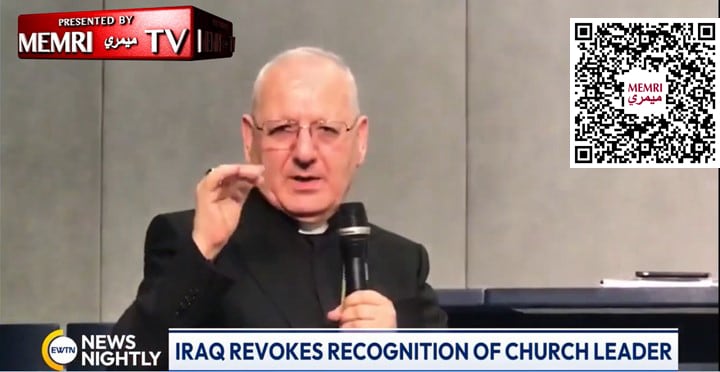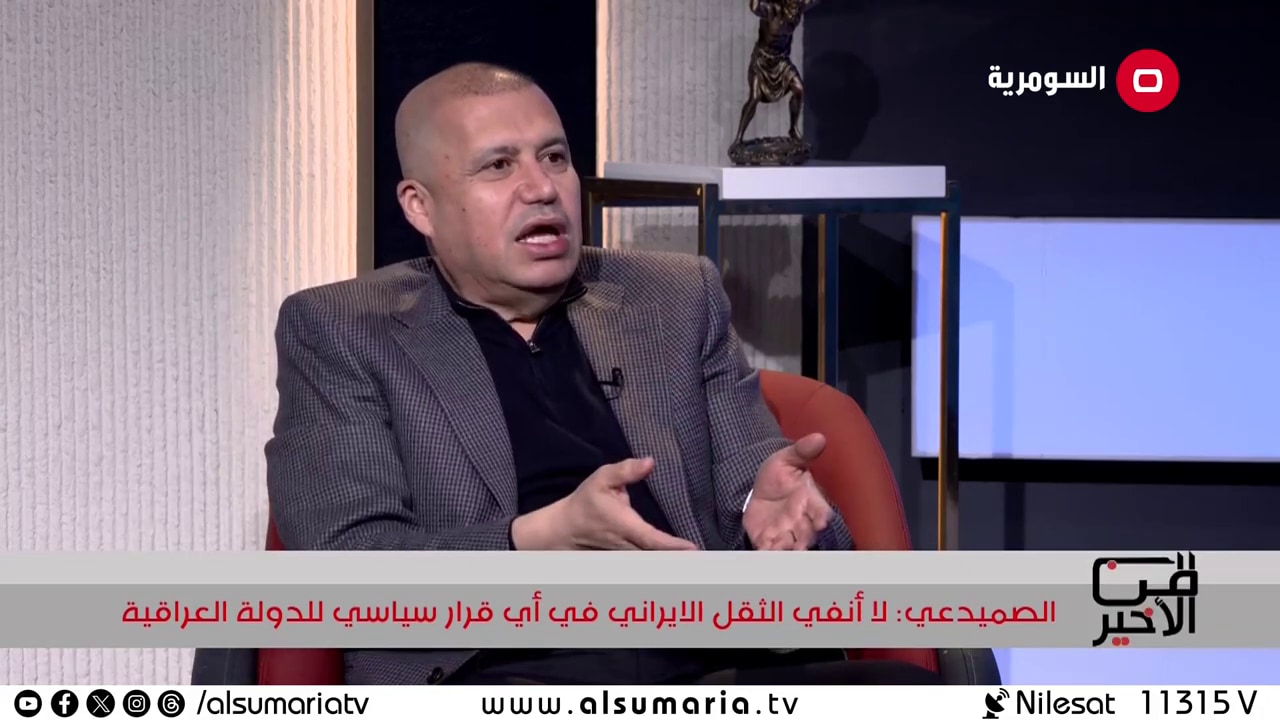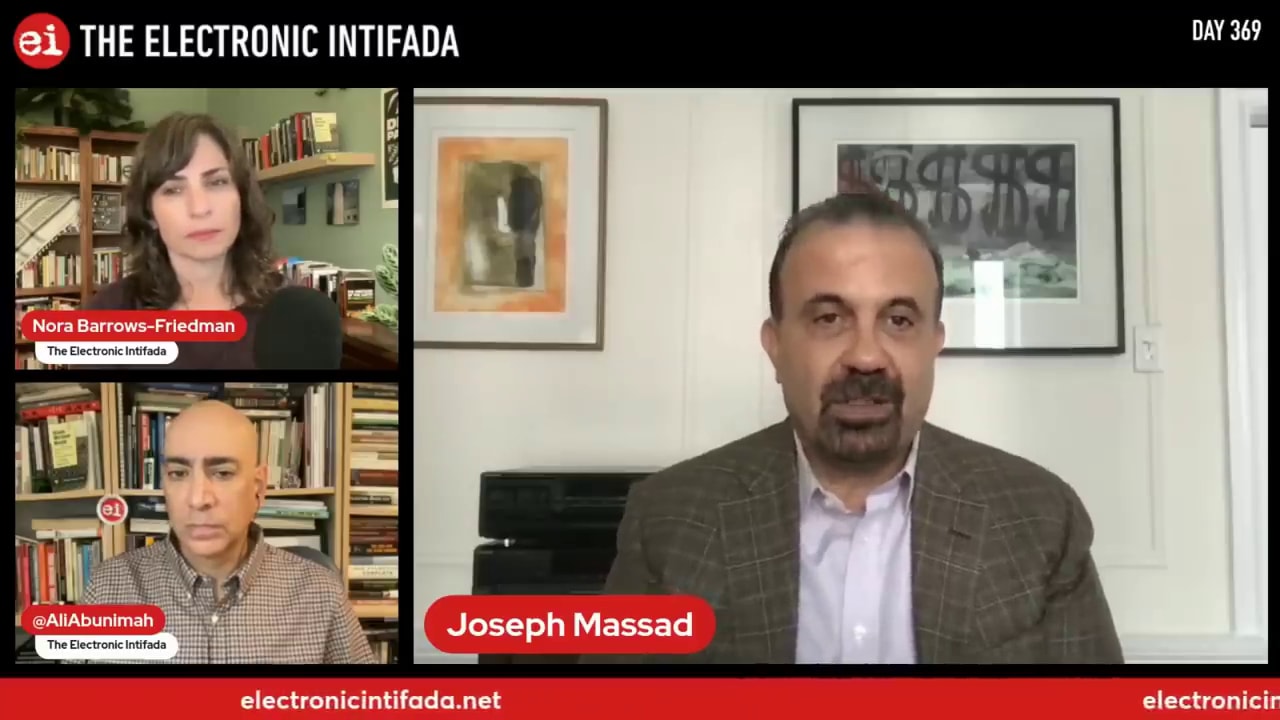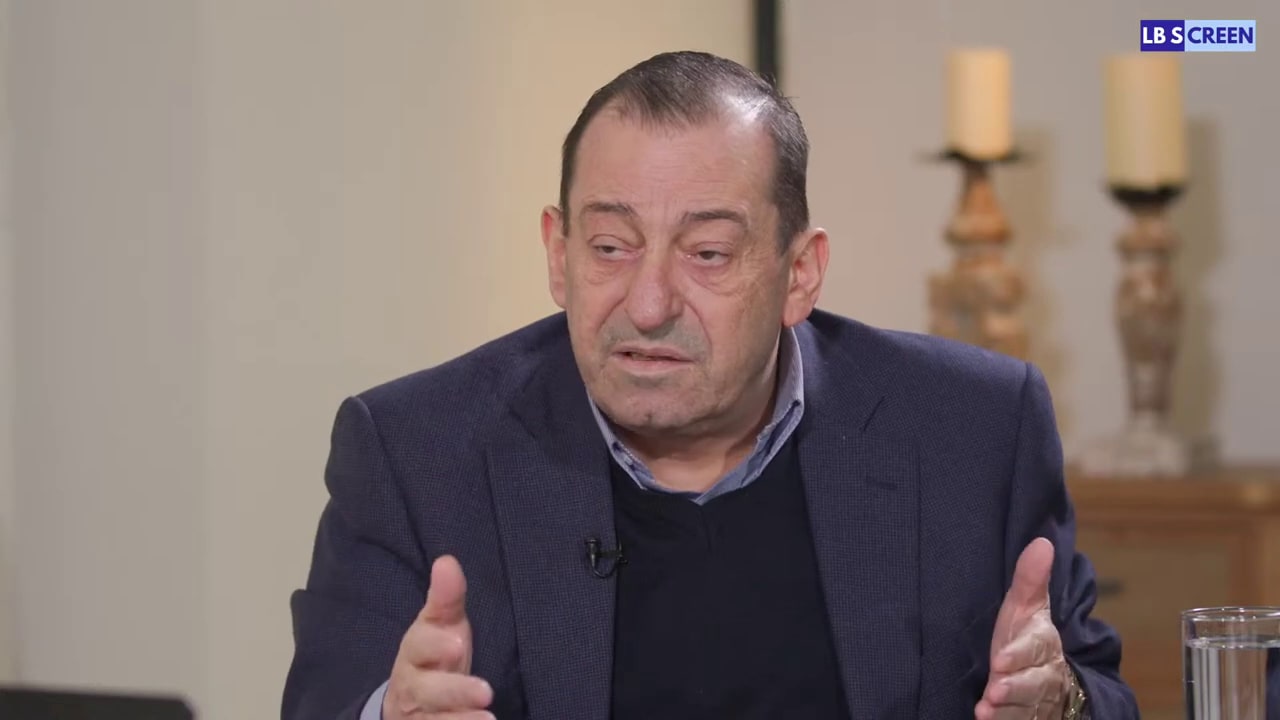
On July 19, 2023, EWTN posted to its YouTube channel an interview with former U.S. Ambassador Alberto M. Fernandez, who serves as MEMRI's Vice President, about the Iraqi government's recent decision to revoke its official recognition of Chaldean Catholic Cardinal Louis Raphael I Sako as the leader of the largest Christian church in Iraq. Ambassador Fernandez said that this move reflects an unprecedented degree of Iraqi government intervention in the dealings of the church.

Reporter: "The patriarch of the Chaldean Catholic Church, Cardinal Louis Sako announces his move to Kurdistan after Iraq's president revoked a decree recognizing him as the head of the Christian church in the country. Sako issued a statement calling the actions unprecedented and unfair. He will now be taking up residence in a monastery in Kurdistan, a region of Iraq considered to be autonomous. From there he will continue to lead the Chaldean Church, which has hundreds of thousands of members across the world.


"And joining us now is former Ambassador Alberto Fernandez, the Vice President of the Middle East Research Institute. Ambassador, great to be with you today. Thank you so much for coming on. If you will please put this into context for us. How significant is it that the president of Iraq revoked the decree recognizing Cardinal Sako as the head of the Christian Church in Iraq?"

Ambassador Alberto Fernandez: "I'm glad to be on with you. It is unprecedented. It has never happened. Even under the dictatorship of Saddam Hussein, this had never happened, this level of interference in the world of the church. So it is a very disturbing thing that just happened, wholly unprecedented, and really bad news. Chaldean Christians, Chaldean Catholics have suffered greatly for the past 20 years. This is a very worrying development."

Reporter: "Yeah, it is really concerning. What should we know about Cardinal Sako and his leadership in the church?"
Amb. Fernandez: "He's been a faithful shepherd and a really good pastor. He was made a bishop 21 years ago, right before the fall of the Saddam regime and the chaos which happened in Iraq, the great suffering of Iraqi Catholics, of Iraqi Christians after the liberation of Iraq. He was a bishop for ten years, and then ten years ago he became the Patriarch of the Chaldean Catholics.

"He has had to shepherd a flock which has had unprecedented pressure – the attacks of ISIS, the chaos of Americans being there, the war and fighting, and the flight of many Christians, fleeing... I mean, he's had to shepherd the church through probably the most difficult period it has had since the 14th century when the Mongols were in Iraq."
Reporter: "I know that in an open letter he called this a deliberate and humiliating campaign. That said, what do you think the Iraqi president is trying to do here?"

Amb. Fernandez: "Iraq is one of the most corrupt countries in the world, and the president is with a faction which leans towards Iran. There is a political group that claims to have authority over Iraqi Christians, called Babylon – the Babylon group, or Babylon militia, or movement – which is in the pocket of Iran. And so there is a political element and there is also a financial element.
"The church, the patriarch, is the custodian of large amounts of church properties, especially in Baghdad. And the sense of many people, many observers, is that this is a political-financial move, a way of squeezing the church, and squeezing land, valuable property, out of the church, which has very few defenders in Iraq. So it is see as a juicy target, both by this mafia of the Babylon militia and to its allies in the pro-Iranian political movement in Iraq, which is extremely powerful."
Reporter: "Ambassador, I wish we had more time to talk about this. But thank you so much for weighing in. We really appreciate it. God bless you."
Amb. Fernandez: "Thank you."














